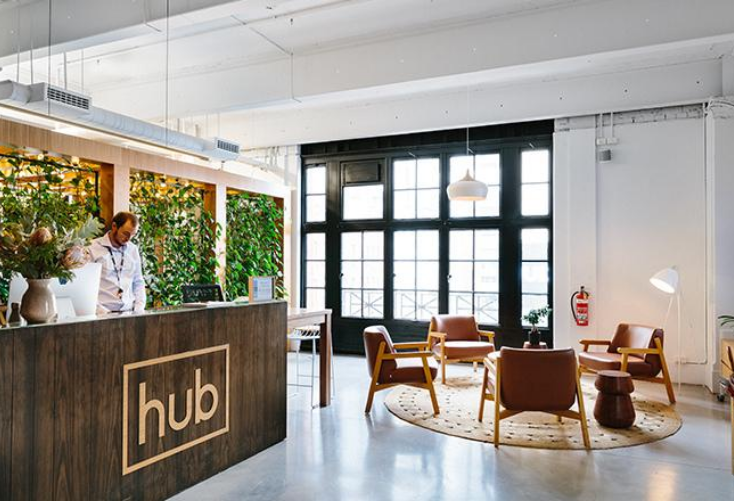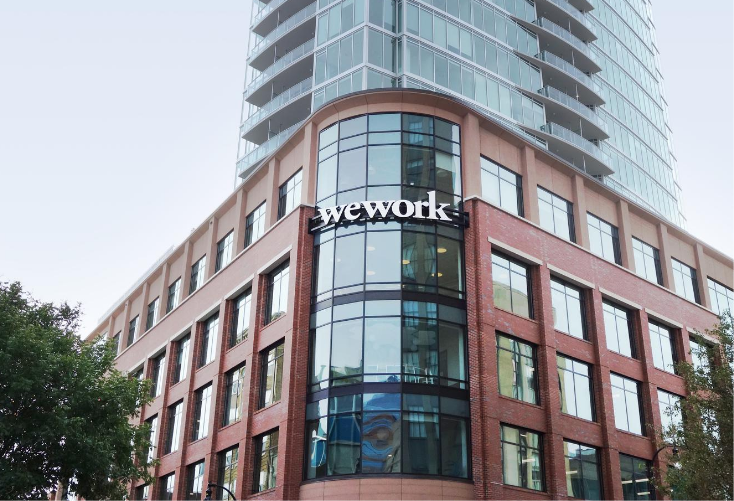Hand selected flexible workspace news from the most reliable sources to keep you ahead of the pack. We find all the latest news, so you don’t have to. Morning and afternoon updates. Stay in the know.
- Micromanaging Remote Workers Can Be Harmful NEW
- Survey Reveals Most Canadian Workers Want Flexibility NEW
- Hub Australia Becomes Carbon Neutral Certified
- Coworking Firms Moving Forward With Expansion
- Women-owned Businesses Are Bearing The Brunt Of The Pandemic
Micromanaging Remote Workers Can Be Harmful
Companies are slowly settling into some form of flexible work, and in order to keep up the employee experience, they will need to either take the empowerment or monitoring approach.
When organizations initially made the sudden transition to remote working, many used the monitoring method to ensure that employees were getting work done.
According to an interview between SHRM and Gartner, nearly 20% of companies purchased some type of tracking software or technology to monitor employees during April and May of this year.
“It’s everything from technology that will take photos of employees from their laptops to tools that allow workers to punch a virtual time clock to tracking keystrokes to monitor productivity levels,” said Brian Kropp, chief of research in Gartner’s HR practice.
However, this strategy leads to employees experiencing increased levels of stress over being surveilled, and not focusing on completing quality work.
That is why empowerment is a much more effective strategy. When employees feel hindered and micromanaged by employers, it causes them to feel unsatisfied, stunts their career growth and often leads to high turnover rates.
One way to instill trust between employees and leaders is to conduct real-time surveys to measure how workers are doing and provide a better idea of how to support them to meet their goals.
By offering such tools and strategies, employees perform better and can be part of a much more engaged workforce even when working remotely.

Survey Reveals Most Canadian Workers Want Flexibility
A new survey from ADP Canada has found that 45% of Canadian workers want to work remotely at least three days out of the work week. Respondents of the survey also said that remote working has had little impact on their quality of work or productivity.
Overall, the response about flexible and remote working seems overwhelmingly positive. However, 69% said that they would not accept reduced compensation for working from home.
“It’s clear that employees want to choose how and when they work. Employers that embrace flexibility within their culture may improve employee engagement, retention and performance,” said Heather Haslam, Vice President of Marketing at ADP Canada. “However, flexible work requires the appropriate tools to support collaboration, productivity, workplace culture and engagement in a remote environment.”
The workplace of the future will undoubtedly feature some sort of flexibility, particularly as respondents express anxiety about coming back to the office. In fact, the survey found that 53% of workers had mixed feelings about going back to the workplace, with 56% saying they were concerned about contracting COVID-19.
Despite the uncertainty many workers appear to be feeling, 84% said they believe their employer has taken the necessary steps to protect them from the spread of the virus by enacting stricter distancing measures, upping their sanitation practices and offering the equipment necessary to keep them safe.

Hub Australia Becomes Carbon Neutral Certified
At the beginning of the year, Hub Australia revealed its commitment to becoming carbon neutral certified and after months of work, it has officially achieved this goal.
The company has become certified as carbon neutral as both an organization and a product by Climate Active, a government certifier, with help from consultant Pangolin.
This certification makes the company Australia’s first coworking provider to be certified being carbon neutral in both organization and product for its over 3,000 members.
To achieve full certification, companies must go through a long process that includes investigating supply chains, transportation choices, resources and products. The company has highly valued its environmental impact since its founding.
“We sought certification through Climate Active as they are Government-led and offer the most rigorous and credible certification process,” said Brad Krauskopf, founder and CEO of Hub Australia.

Coworking Firms Moving Forward With Expansion
Some coworking operators are moving forward with expansion plans, despite the office market taking a hit due to the ongoing pandemic.
For instance, WeWork recently opened its 21st location in Australia as it works to target larger businesses to obtain profitability.
The new location in the Sydney CBD is within a 14-story building, 13 of which are taken up by WeWork.
“As organisations consider how to plan for the future work amid continued uncertainty, we’re seeing an uptick in demand for companies taking up a central space in the city where they can safely occupy a full floor private office surrounded by the energy of a collaborative community,” said Balder Tol, general manager of WeWork Australia.
Tol added that despite a fall in foot traffic, the company was optimistic about companies returning to the workplace and has seen an uptick in demand for September.
Another coworking operator Workit Spaces is preparing to open its third location geared towards e-commerce businesses. It will take up 9,000 square meters of space, with the first 3,000 square meters opening in November.
“We’ve had our fair share of concerns about the uncertain economy but we’ve taken a calculated risk and are expecting commercial real estate to take off again,” said Talea Bader, managing director of Workit Spaces.

Women-owned Businesses Are Bearing The Brunt Of The Pandemic
The National Bureau of Economic Research has found that the pandemic has eliminated a quarter of women-owned businesses, confirming that COVID-19 has had an increasingly negative impact on women and people of color.
The closure of early-stage companies, such as women-focused coworking spaces, will have a broader impact as they tend to be homes for women-owned businesses, which could enhance gender inequality in ownership.
Over the past few years, women-oriented companies had been opening across the globe, with firms like New York’s the Wing nurturing communities designed for women.
Another example is Cate Luzia’s company Luminary, which is a physical space and community built to advance women in the workforce.
Luzia said that since founding the company, she has expanded a network of women’s spaces to better support members. Now, as these operators are facing closures and employees continue to work remotely, revenues have been seeing all-time lows.
“Although I was able to reopen Luminary, so many of our partner communities and other spaces around the country weren’t able to survive the virtual reality we are living through,” wrote Luzia. “Now, there’s the ripple effect as some of these essential spaces and communities close their doors forever.”
Many of these companies have pivoted to digital platforms to stay afloat as the pandemic rages on, and getting through the “shecession” will require a strong sense of community among these businesses.



 Dr. Gleb Tsipursky – The Office Whisperer
Dr. Gleb Tsipursky – The Office Whisperer Nirit Cohen – WorkFutures
Nirit Cohen – WorkFutures Angela Howard – Culture Expert
Angela Howard – Culture Expert Drew Jones – Design & Innovation
Drew Jones – Design & Innovation Jonathan Price – CRE & Flex Expert
Jonathan Price – CRE & Flex Expert













